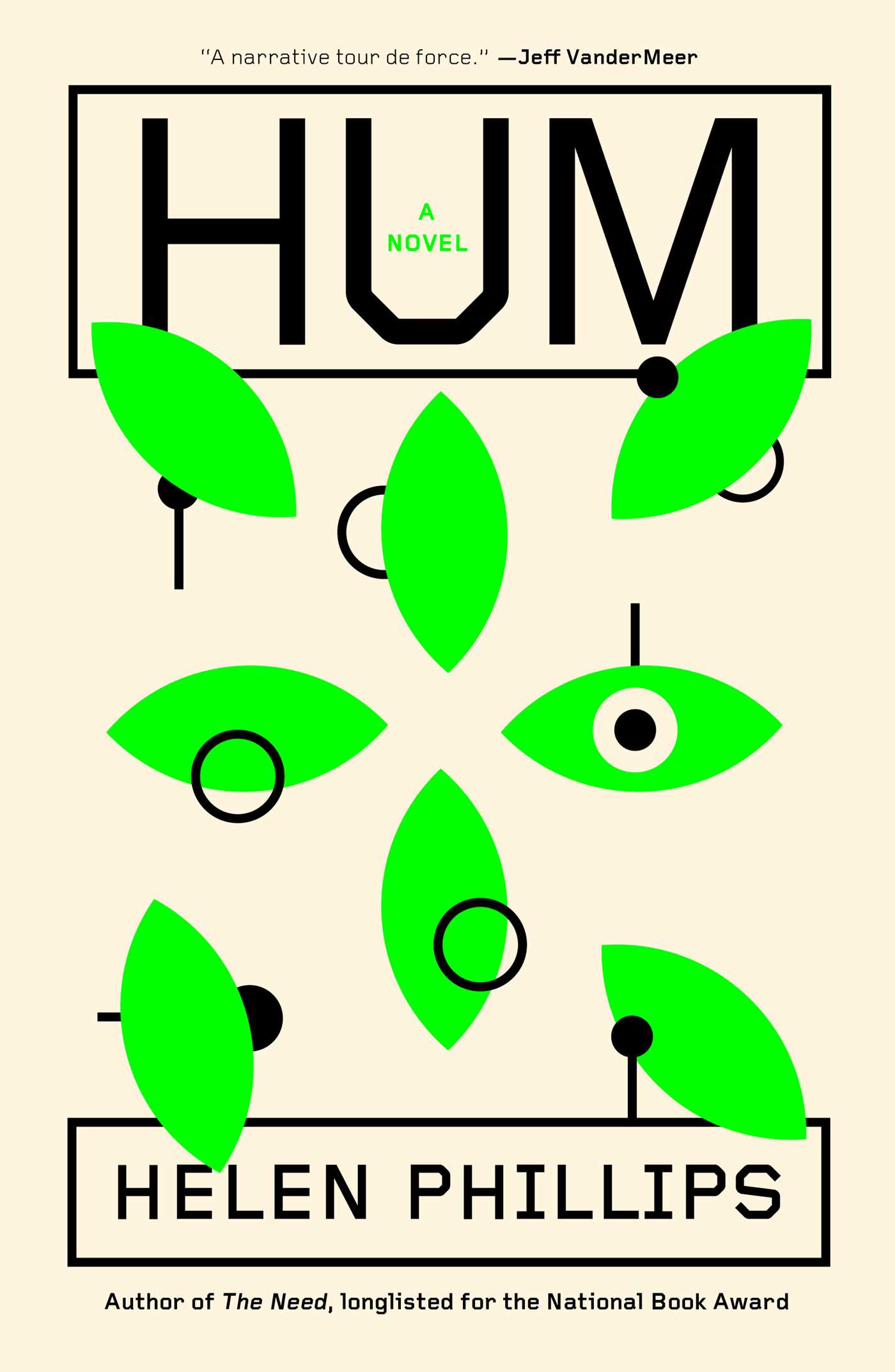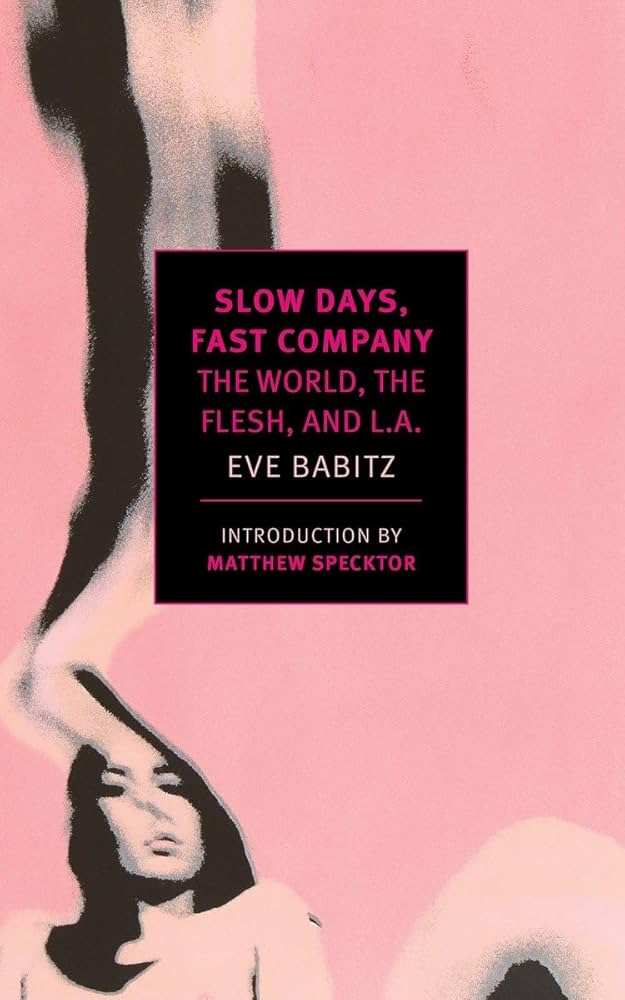The pitch for Helen Phillips’ Hum is pretty compelling: May has lost her job to AI, and to make ends meet she volunteers for an experiment that will make her unrecognizable to surveillance. Minor surgery changes her appearance in subtle ways that make her unrecognizable by AI, while almost imperceptible to her family. Almost. In return she gets enough cash to sustain her family for several months and allow her to find new employment. Her husband, Jem, does Taskrabbit-type gig work, and they have two young children who are hopelessly addicted to technology.
The first few pages set it up as a kind of Minority Report world: robots (“hums”) are everywhere. They immediately recognize the people they interact with, and every interaction with them is littered with ads, often irritatingly repetitive. Global climate and conflict crises are alluded to. May’s children are obsessed with their smartwatches (presciently called ‘bunnies‘), she and her husband sleep in separate pods (brilliantly: ‘wooms’), and everyone’s life is dominated by a collection of screens.
There’s a great potential for John Marrs-style dystopian drama, but what Philips wants to explore is kind of incongruent with the world she’s built. Motherhood, public shaming, and income precarity are the dominant themes of the story. May’s relationships are strained – she has anxiety about her children’s reliance on screens, so her reaction to having a bit of financial relief is to book an expensive nature-ish resort for a few nights and do some impulse buying. She and her husband are drifting apart, and she thinks this vacation will bring them all closer together in an offline setting.
Don’t come to Hum expecting compelling speculative fiction — the list of Big Ideas that are squandered in this novel is pretty long, even if most of them don’t feel terribly original. Even recognizing that entirely new ideas are hard to come by, faithful science fiction readers will likely feel that some of these concepts are underbaked.
The biggest, boldest idea — May’s choice to undergo the procedure, and the consequences of anonymity in the age of surveillance — is disappointingly inconsequential to the novel, other than being framed as a way to earn quick cash. May winds up being annoyed and using her fingerprint as ID anyway. There’s a brief moment where her anonymity threatens her ability to help her children, but a cheek swab ends it before it starts. There’s a kind of a reveal about why the procedure pays rather than costs, but it’s an afterthought.
Even the climate crisis exists to make the resort appealing, and not really to any other end. As a dystopia, it’s wasn’t original enough, or richly imagined enough, to capture my imagination.
It didn’t work for me as a family drama either. The characters aren’t likable and make illogical decisions. The ending felt rushed and abrupt and left a bunch of loose threads. I never detected any chemistry between May and her husband, and Jem’s own decisions toward the end of the book were irrational, which betrays his super pragmatic behaviour to that point.
Hum is a story about parental anxieties told in an exotic and fascinating setting, but for me neither of those aspects were strong enough to carry the book.







